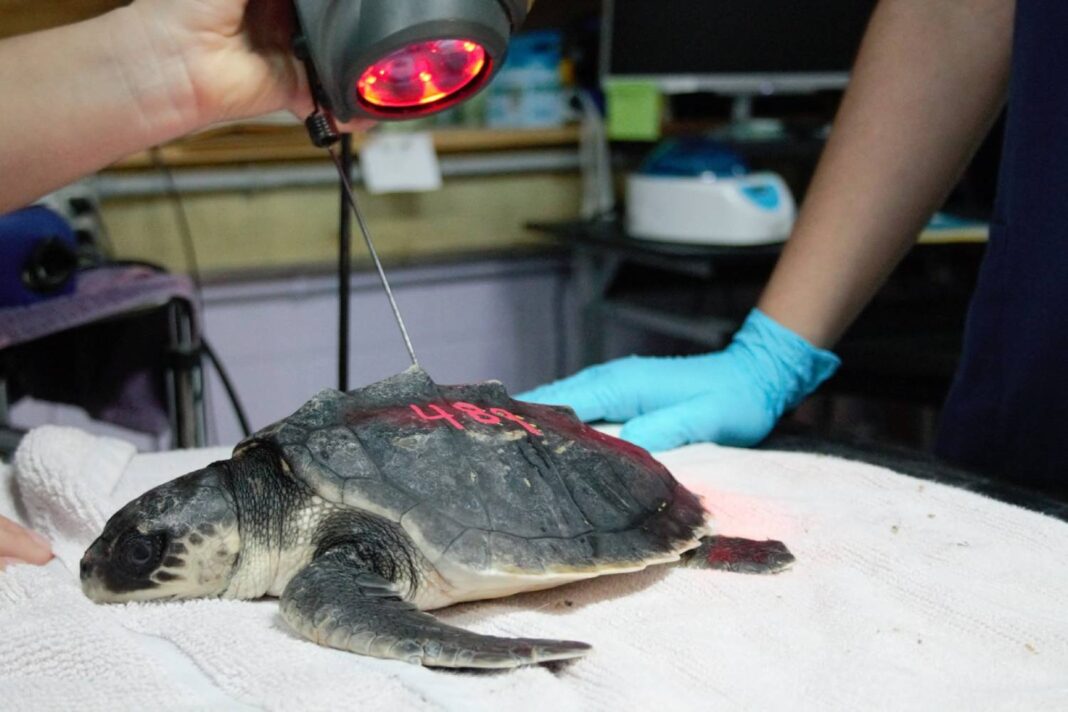SOUTH PADRE ISLAND — When there’s a sudden change in weather and temperatures continue to remain chilly, these conditions could cause sea turtles to become cold-stunned.
Because cold-stunning happens almost every year, Sea Turtle, Inc. personnel say they’ve been keeping an eye on the weather and are getting ready to take in and rehabilitate as many turtles as needed.
“We have a network of volunteers and some wonderful partners that we work with,” Sea Turtle, Inc. Chief Conservation Officer Dr. Amy Bonka said. “The volunteers that we work with are through our cold-stunned training, so they’re prepared, know what to look for and where to go.”
According to Bonka, when temperatures drop very quickly and low, like they have this week, it stuns sea turtles.
She explained because sea turtles are cold-blooded animals, they cannot regulate their internal body temperature like humans can.
“Their internal body temperature depends on their environment so when the temperature drops really cold like this, it shocks them and they basically can’t move,” she said.
According to Bonka, when this happens, sea turtles can’t swim, dive to hunt for food or do anything so they end up floating at the surface.
“We and our partners go out and we look for the turtles that are either floating at the surface or have been washed in because they can’t actively swim,” she said. “Then, what happens is that they come into our facility and we go through different steps to basically warm them back up.”
Bonka said when it’s warm again, they can release the sea turtles back out into the wild.
She recommends that anyone who sees a sea turtle washed ashore or floating in the water call Sea Turtle, Inc. immediately at its 24/7 sea turtle stranding number (956) 243-4361.
Nesting season
In addition to preparing for the impact of the cold weather, Sea Turtle, Inc. has started its preparation for the sea turtle nesting season.
According to Bonka, the facility will have patrols starting at the end of March into April.
Bonka said she encourages anyone who comes across a nesting turtle to call the facility’s emergency number.
“They can let us know they’ve found a nesting turtle so we can respond to it,” she said. “If they do come across a nesting turtle, I would say call the phone number, but make sure that they don’t touch it and they stay back away from it so that she can continue her process of nesting.”
For more information about Sea Turtle, Inc., visit www.seaturtleinc.org.




